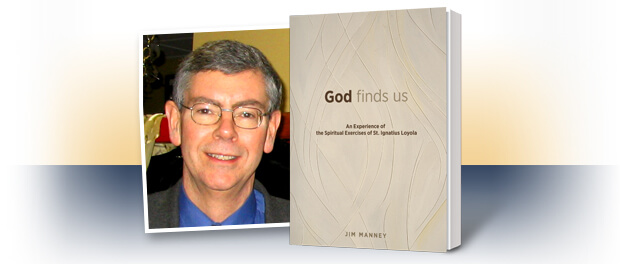Here’s something from my book God Finds Us: An Experience of the Spiritual Exercises of St. Ignatius, published by Loyola Press. I talk about Ignatius’s aim in writing The Spiritual Exercises.
What exactly did Ignatius have in mind? Many commentators on the Exercises say they are about helping us make good decisions. That’s surely true: early in the Exercises we ask “what have I done for Christ? What am I doing for Christ? What ought I to do for Christ?” These questions loom over the whole experience of the Exercises; you keep coming back to them. The Exercises have a lot to say about discernment, and one important section is devoted to making a major life decision, if one is in the offing. But the Exercises are about other things too. They are about prayer; they’ve been called “a school of prayer.” They are about repentance and forgiveness. They are about knowing more about yourself. They are about generosity of spirit.
Something Pedro Arrupe said sums up what Ignatius had in mind. Arrupe was superior general of the Jesuits from 1965 to 1983. By all accounts he was a lovable, enchanting man, deeply spiritual, infectiously optimistic. I think of him as one of those rare characters who light up the room, who make you feel like he’s your best friend as soon as you shake his hand. One of Arrupe’s best-known (though incorrectly attributed to him) quotes begins this way: “Nothing is more practical than finding God, that is, than falling in love in a quite absolute, final way.” It’s what Arrupe said next that strikes me.
What you are in love with, what seizes your imagination, will affect everything. It will decide what will get you out of bed in the morning, what you will do with your evenings, how you will spend your weekends, what you read, who you know, what breaks your heart, and what amazes you with joy and gratitude. Fall in love, stay in love and it will decide everything.
I don’t know a better description of what Ignatius Loyola intended when he put the Spiritual Exercises together. He wants us to fall in love. He’s interested in those deep currents of feeling that shape what we want, which in turn influences what we do. Psychologists talk about the three parts of the mind: the cognitive (reason and other mental processes), the conative (the will), and the affective (feelings and emotions). Ignatius zeroed in on the “affect.” Understanding is important, and the will is vital, but what gets you out of bed in the morning is what you love. This is what Ignatius wanted the Spiritual Exercises to influence.


today is the one day in the middle of the week that I accept that change is
within me as my normal had begun to be abnormal.
Willing to believe is
change of my thinking that leads to me put action into place. Just for 1 sec, 1 min, 1 hour 1 day 1 week 1 month that has now been 1 year 9 months.
Tonight is Holy Thursday and by God’s grace I feel so deeply loved by Him.
I ponder on His words when He gave Himself to us in the Eucharist, “. . .do this in memory of me”, and I realize once again that His love abides in me and my family all the days of our life.
Thank you, Jim, and congratulations on your new book! I hope that it’s a blessing to a lot of people. I have a question I’d like to ask you about the excerpt. I’ve read that quote of Pedro Arrupe before but it puzzles me. I’m not sure what Pedro Arrupe means when he invites me to ‘fall in love’. I ask myself is this something I have any power to do? Don’t we just fall in love without consciously willing to do so? Doesn’t the image of falling imply the almost helpless nature of it? We can will to love someone or something – wishing for the good, we can ask for the grace to fall in love, we can imagine falling in love, but can we decide to ‘fall in love’?
Paul,
Good questions, and they go right to the heart of the Spiritual Exercises. The Exercises cause us to ask what we most deeply desire. What brings the most joy? The Exercises help us understand what that is and to freely choose it. In my book I call it “conversion of the heart.” Arrupe called it “falling in love.” It’s something that God does, but we’re not passive bystanders. Ignatius said that in the Exercises we “make ourselves ready” to get rid of a disordered affections. There’s lots for us to do. In that sense, I suppose that we can decide to “fall in love.”